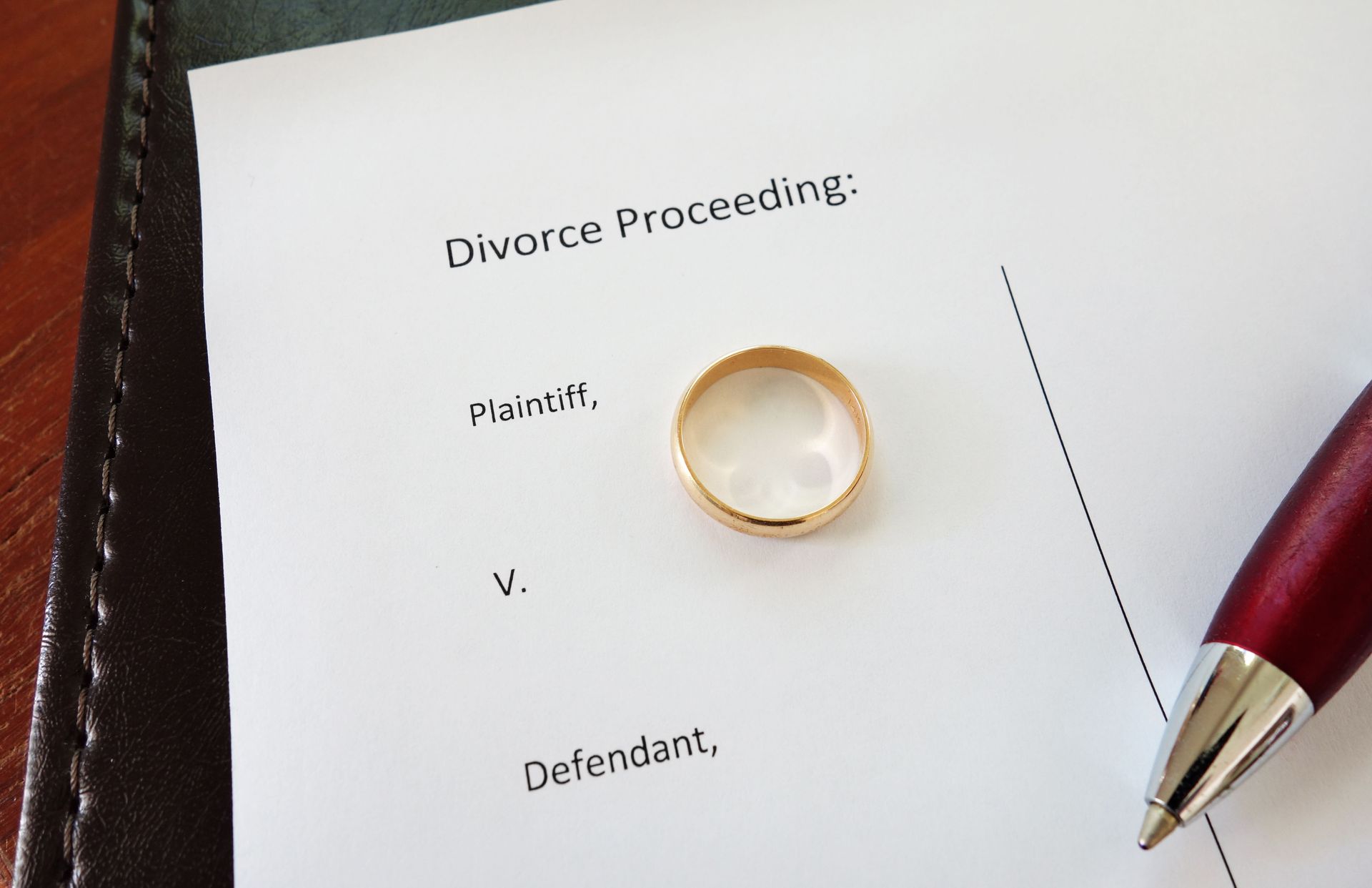Exploring Divorce Options in Danbury: Why Mediation Might Be Right for You
By Attorney Robyn Mann | November 11, 2025
Highlights:
- Mediation Keeps You in Control: Couples work with a neutral mediator to reach agreements, rather than leaving decisions to a judge.
- Significant Cost Savings: Mediation can reduce divorce expenses by 50-70% compared to traditional litigation.
- Faster Resolution: Mediated divorces often conclude in 3–6 months, versus 12–18 months in court.
- Privacy and Confidentiality: Mediation discussions remain private, unlike court proceedings, which are public record.
- Collaborative Divorce Support: Structured cooperation with attorneys, financial experts, and child specialists ensures fair solutions for complex situations.
- Preserves Family Relationships: Mediation focuses on communication skills, helping co-parents maintain positive relationships post-divorce.
Most divorces don't have to end in long court battles that drain your time and money. If you're searching for divorce options in Danbury, you might find that mediation divorce offers a way to settle matters more peacefully. Robyn Mann Law focuses on helping couples resolve disputes through mediation and collaborative divorce, making the process less stressful and more manageable. Keep reading to understand why this approach could be the right fit for you.
Understanding Divorce Options
Ending a marriage brings tough choices about how to move forward. Your approach to divorce can shape your financial future, family relationships, and emotional well-being for years to come.
Mediation vs. Litigation
Traditional courtroom divorces and mediation represent two very different paths through the divorce process. Court battles often create winners and losers, while mediation aims for mutual solutions. In litigation, each spouse hires their own attorney who fights for the best possible outcome for their client. This approach can turn spouses into opponents, with a judge making final decisions about your life. The Connecticut Judicial Branch explains that litigated divorces typically take longer and cost more than other options.
Mediation takes a different route. You and your spouse work with a neutral third party—the mediator—who helps you reach agreements on everything from property division to parenting time. The mediator doesn't make decisions for you but guides conversations toward solutions that work for both parties. Many couples find that mediation keeps them in control of their divorce rather than placing important life decisions in a stranger's hands.
Fun Fact
Mediation Can Cut Divorce Costs in Half: While a traditional litigated divorce in Connecticut can cost $15,000–$30,000 per person, couples who choose mediation often spend 50–70% less, leaving more money in the family’s pocket rather than going to legal fees.
Benefits of Mediation Divorce
Choosing mediation for your divorce brings practical advantages that can make a difficult time more bearable. Cost savings top the list for many couples considering this option. The average litigated divorce in Connecticut can cost $15,000 to $30,000 per person. Mediation typically cuts these expenses by 50-70%. This means more money stays in your family rather than going to legal fees.
Time matters too. Court divorces often stretch 12-18 months, while mediated divorces can wrap up in 3-6 months. Faster resolution means you can begin rebuilding your life sooner. Privacy represents another key benefit. Court records become public, but mediation discussions stay private. This protects personal matters from becoming community knowledge. For parents, perhaps the greatest advantage is preserving relationships. Mediation teaches communication skills that help co-parents work together long after the divorce papers are signed.
Collaborative Divorce Explained
Collaborative divorce offers a middle path between mediation and litigation. This approach brings structure while still focusing on cooperation rather than conflict. In collaborative divorce, each spouse has their own attorney, but everyone signs an agreement to work together. If the process breaks down and you go to court, you must hire new lawyers—a strong incentive to stay at the table.
The team often includes financial experts and child specialists who provide neutral guidance. This creates a support system focused on finding fair solutions for everyone involved. Meetings happen in conference rooms, not courtrooms. You set the pace and priorities rather than following strict court schedules. The Women's Law organization notes that collaborative divorce works well for complex financial situations while still maintaining the cooperative spirit of mediation. Couples who choose this path often report feeling heard and respected throughout the process—something rarely said about traditional divorces.
Fun Fact
Most Divorces Wrap Up Much Faster with Mediation: Courtroom divorces often take 12–18 months, but mediation can settle matters in just 3–6 months, letting couples start rebuilding their lives sooner and with less stress.
Common Questions About Mediation
Many people wonder if mediation will work for their specific circumstances. You might question whether mediation makes sense when communication has broken down between you and your spouse. Skilled mediators regularly help couples who struggle to talk productively. They create ground rules and structure conversations so everyone feels safe sharing their needs. Even high-conflict couples often find mediation provides a way forward when guided by an experienced professional.
"Can mediation handle complex financial situations?" This ranks among the top concerns for many couples. The answer is yes—mediators often bring in financial experts to help with business valuations, retirement accounts, and tax implications. These specialists provide neutral information that helps both parties make informed decisions. Parents frequently ask how mediation addresses child custody matters. The process puts children's needs at the center, helping parents create parenting plans that work for the whole family. Connecticut divorce experts over at Divorce Net confirm that courts generally approve mediated parenting agreements, recognizing that parents know their children best.
Frequently Asked Questions
What is the main advantage of choosing mediation over traditional divorce litigation?
Mediation keeps couples in control of decisions rather than leaving outcomes to a judge, and it often reduces costs by 50–70% while resolving matters much faster—typically in 3–6 months compared to 12–18 months in court.
How does mediation address complex financial or custody issues?
Mediators can involve financial experts to handle business valuations, retirement accounts, and taxes. For families, mediation focuses on children’s needs, helping parents develop parenting plans that courts generally approve.
Do I still need a lawyer if I choose mediation?
Yes. A family law attorney can guide you on your rights, review proposals, and ensure legal requirements are met, providing protection without the adversarial approach of traditional litigation.
The Role of a Family Law Attorney
A family law attorney brings crucial knowledge to your divorce journey. Their guidance helps you navigate legal requirements while protecting your interests. Even in mediation, consulting with a lawyer helps you understand your rights and options. Some people meet with an attorney before mediation sessions to review proposals and get advice about fair outcomes. This "consulting attorney" role gives you legal protection without the adversarial approach of litigation.
Your attorney explains how Connecticut divorce laws apply to your situation. They help you gather financial documents, complete court forms correctly, and meet filing deadlines. These technical aspects matter—mistakes can delay your divorce or create problems years later. Family law attorneys also provide perspective based on experience with hundreds of similar cases. They can help you separate emotional reactions from practical decisions, focusing on what matters most for your future. The right attorney becomes your guide, educator, and advocate through one of life's most challenging transitions.
Take Control of Your Divorce Journey
Choosing the right approach to divorce can shape your financial future, family relationships, and emotional well-being. Mediation and collaborative divorce in Danbury offer a peaceful, cost-effective alternative to traditional litigation, helping couples reach fair agreements while preserving privacy and relationships. With the guidance of skilled mediators and knowledgeable family law attorneys, you can navigate this challenging transition with clarity, control, and confidence—allowing you to move forward and rebuild your life on your own terms.





Share On: